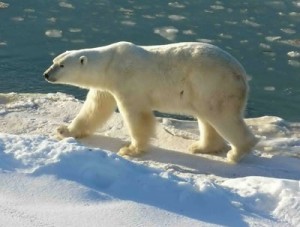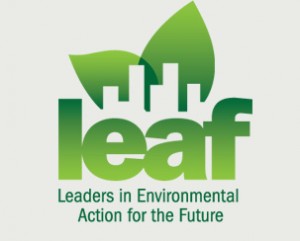
1. Climate Change: Connections and Solutions
Facing the Future offers this free two-week curriculum unit for middle school and high school which encourage students to think critically about climate change and collaborate to devise solutions. Students learn about climate change within a systems framework, examining interconnections among environmental, social, and economic issues.
https://www.facingthefuture.org/Curriculum/PreviewandBuyCurriculum/tabid/550/List/1/CategoryID/16/Level/a/Default.aspx#.UmbDNBCRh8k

2. Climate Change Teacher Resources
Windows to the Universe provides interlinked learning resources that support a variety of topics, including online content for browsing or to support an introductory online course on climate change, teacher professional development resources, classroom activities, and online interactives.
http://www.windows2universe.org/teacher_resources/climate.html

3. ClimateChange LIVE! – Resources and Online Webinars
The U.S. Forest Service and partners offer this website to bring climate learning to you through a series of webcasts, webinars, and online climate education resources. The materials include climate education resources and programs gathered from 17 federal agency and NGO partners. The National Wildlife Federation is hosting a series of six webinars in connection with the ClimateChange LIVE! materials; you may register for one or more webinars at a time.
http://climatechangelive.org/

4. Teaching Climate
Teaching Climate offers a searchable database of reviewed K-12 climate education resources. The resources have been reviewed by subject experts for scientific accuracy, pedagogical soundness, and usability. Topics include Climate Systems, Measuring & Modeling Climate, Human Responses to Climate, and more.
http://www.climate.gov/teaching

5. Citizen Science: Project FeederWatch
Those interested in citizen science can join the thousands of FeederWatchers across North America who count the birds at their feeders from November through early April. All participants receive the project’s annual summary publication and the Cornell Lab’s quarterly. New project participants receive a bird-identification poster, bird-feeding information, and instructional materials.
https://store.birds.cornell.edu/Project_FeederWatch_s/42.htm

6. CMOP: Studying Coastal Margins
The Center for Coastal Margin Observation & Prediction, an NSF Science and Technology Center partnership of Oregon Health & Science University, Oregon State University, University of Washington and others, focuses on coastal margins. The website offers a collection of activities and curricula that can help you use their data resources. Check out the materials on coastal hypoxia, vertical density gradients, drifters and currents, and more. Some of the materials are available in both English and Spanish.
http://www.stccmop.org/education/k12/teacher_resources/activityarchive

7. Urban EE Resources for High School Teachers
The LEAF Anthology of Urban Environmental Education is available online. The anthology is a collection of lessons and activities designed to help high school educators infuse urban environmental themes into their curriculum. Sections include Natural Cities, Human Cities, and Evolving Cities.
http://www.nature.org/about-us/careers/leaf/resources-for-teachers/leaf-anthology-of-urban-environmental-education.xml

